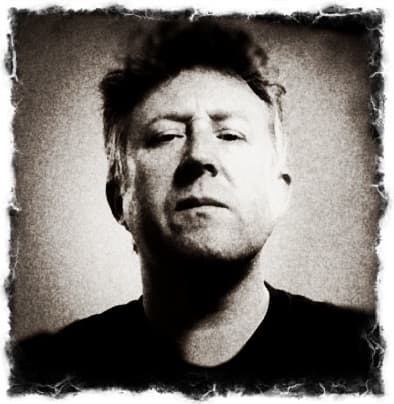32 Tips For Indie Feature Film Development & Pre-Production

32 Tips For Indie Feature Film Development & Pre-Production

Fun. The main reason most of us got into (or are trying to get into) the film and TV industry is because it sounds so much fun! And it is - some of the best times of my life have been on set. I have been lucky enough to have filmed all over the world, from Pinewood to Bollywood and from Montana to the Sahara. I’ve worked on some really wonderful productions and I’ve been on some really awful productions that if I could get in my TARDIS, travel back in time, and change that timeline - then I would.
But it’s the ‘fun’ that keeps us coming back time after time: The incredible sense of accomplishment that comes with completing the first draft of a screenplay: printing it out and holding it in your hands! Completing everything on the call sheet on a tough shoot and seeing it’s still ten minutes before WRAP! Watching an actor and crew nail a really complicated or emotional scene. Or that amazing feeling when you say CUT for the last time on a feature film! Even the worst shoots provide us with endless anecdotes, and how quickly we forget the bad days.
But the fun bits come from a lot of tedious and non-fun bits. Many filmmakers don’t want to do the boring bits, but understanding and doing these non-fun bits will increase the actual fun when you get to it: give you less stress, fewer nightmares, less stomach-tightening phone calls from accountants and lawyers, and ultimately a better and more sellable movie.

Krista DeMille and I in Montana filming "Atomic Apocalypse"
I’ve made a lot of movies. I started off as a Runner and worked my way up. I worked on 13 movies as a 1st AC & 2nd AC and Director of Photography before I became an award-winning Director & Writer in my own right. Having gone from Runner to director I have experienced the whole gauntlet of filmmaking from the biggest shoots (Harry Potter and James Bond) to tiny micro-budget one-man crew shoots. I have seen many ways to do things effectively and simply.
Here are some tips to help smooth along your next production. These are my observations from more than 1,000 days on set and 29 years in the industry! Hopefully, they will make your filmmaking journey more fun and more productive.
There are 6 main areas of filmmaking for the indie filmmaker: Development, Pre-production, production, post-production, festivals, and sales. There are whole blogs, books, and courses on each of these, so for further elucidation please absorb all the info that is out there – these are 32 tips I hope are of use.

In the Lava Tunnels of North California "Atomic Apocalypse"
General Tips
Tip #1: Filmmaking always takes longer than you think it will. Even if you have a deadline, then you’ll re-edit it later on. (George Lucas knows what I’m talking about).
Tip #2: If it’s not fun something has gone wrong. There will be stress and complications but ultimately you should look forward to every day.
Tip #3: There is no right path to success: luck and timing play a huge part. If you have connections or know anyone famous, then use/ask them.
Tip #4: You may meet some dreadful people: trust your gut: if they seem awful they probably are. Ask yourself: do you want to sit next to them on a 10-hour flight? Or hang out with them for six weeks on set?
Tip#5: Filmmaking is really hard. The benefits are few and there is no holiday pay. There will be times when you might get depressed, stressed, and lonely. Recognize these times and if they happen reach out to your friends and colleagues. We all understand. We are here for you.
Tip #6: ask yourself why EXACTLY you are making this movie. Is it for a showreel? Is it to practice, or is it because you found a bag with a million dollars in it? Knowing why you are making a movie is a really good help in getting it right. Just wanting to make one, you know, because, is not really enough.

By the monitor on set on Hollyoaks (Channel 4)
Development:
Development is all about getting your idea into a wonderful completed script and getting that script ready to shoot.
I have met countless filmmakers who tell me they are working on a script and that they have done 50 pages etc. That is great and wonderful and well done you – but what is really great is finishing a script and having it ready to go.
There are tons of blogs, books, and podcasts about writing screenplays – so I won’t go into the "How" of it right now, just a few tips on how to make it less difficult.
Tip #7: Set a deadline. It is hugely helpful, and just like running a marathon, or going on a road trip, if your subconscious knows there is an end then it will carry on ticking over all the time even when you are asleep and your goal will be more likely to be achieved. Choose a date that everyone knows. I usually use Christmas, or my birthday (Early September), or my Dad’s (May) then I have a clear date in my brain I can work towards.
Tip #8: A professional screenwriter can write a screenplay in 6 weeks full time (I once wrote one in 9 days – and it got made). So 6 months is loads of time. Most screenplays are approx 25,000 – 35,000 words. So break it down, and make it easy. Most scenes are 1 – 2 pages. And if they are longer break them down. Nobody can eat 35,000 Weetabix, but you can eat two or three at a go. Make it easy on yourself.
Tip #9: When writing: don’t have a blank page. Psychologically it’s off-putting. I always write a beat sheet or at the very least a list of notes. And then break them into acts, and fill in the gaps. Then the page is never blank.
Tip #10: If you get stuck on a scene just jump ahead till you find a scene you want to write. It’s a jigsaw puzzle, not a marathon race.

Big crew shot of "Atomic Apocalypse" (UK) shoot
Tip #11: Write short character profiles for all your major characters, goodies, and baddies, this will help you work out how they behave in any situation. It’ll also help you give each character a voice.
Tip #12: Enjoy it – don’t hate it. Make it fun. Put on music you like, sit in a comfy chair, brew a nice cup of tea. Imagine you are one of the characters how would you do it? How much fun would it be to travel the Amazon, and fly in a balloon? Or how terrifying would it be to try to get to an escape pod as an alien is chasing you?
Tip #13: Once you have finished the first draft. Leave it for a least a few days. Then come back to it. Writing is re-writing. Make sure your screenplay is shootable.
Tip #14: Once you have a draft you like, read it out loud. Get actors around, organize a Zoom read-through, and read it through. Everything sounds different once you have read it through. And make sure that you are not reading – just listening. Take notes.
Tip #15: Read a lot of scripts. See how the films that win the BAFTAs/Oscars are written and see what they did that you can learn from.
Tip #16: Watch a lot of movies. Obvs.
Tip #17: Start making a list of everyone you know who might be able to help. In any way. Know someone who owns a truck? Put them on the list. Does a relative do catering? Put them on the list. Know someone who owns some land you could film on? Put them on the list.

A BTS shot of my latest project "Argh and the Quest for the Golden Dragon Skull" which was all shot on my dining room table with miniatures during lockdown!
Pre-Production
If you are an indie filmmaker there will almost certainly be no or very little money during this time, and the temptation to only do the fun bits will be huge. There is a reason that The Lord of the Rings (dir: Peter Jackson) movies are rated more highly than The Hobbit and most of it is due to the time spent in pre-production.
Tip #18: Schedule as much time as possible for pre-production even if the first few days/weeks are just you and an assistant/producer or anyone.
Tip #19: Start phoning the people on the list you made throughout development. Don’t be making that list now.
Tip #20: Read your script many times and read the scenes you are going to shoot the night before and sleep on them. Do not undervalue the work your subconscious will do.
Tip #21: Visit every location and walk through the possible action in that location. Visualize where the actors will be and where you can put the camera and lighting kit.
Tip #22: Think about sound and power. Is it too noisy to film? Can you get electricity to this location or do you need a generator? Are their toilets? Can you park? Where will the Coffee and Tea go? You may think this is not your job, but on an indie film, everything is your job.

Behind the Scenes of "The Search for Simon"
Tip #23: Don’t get inexperienced runners/Production Assistants/Gophers etc to drive your vans and trucks, just pay for an experienced adult to drive them. If you have a full camera kit it could be hundreds of thousands of dollars worth of camera, dolly, grip kit and you want your 21-year-old next-door neighbor’s kid to drive it, who’s only just passed their test on the 27th try. Sounds like a good idea. This is worth the expense, as your truck will arrive on location on time and you don’t have to worry or fill in an insurance claim.
Tip #24: Talk to all your actors about their roles and see if they have suggestions that make the script better. Good actors will sometimes cut dialogue from a script. Bad actors will always want to add more dialogue.
Tip #25: Actors will always say your script is brilliant and wonderful because they want the gig. Even if your script is awful they will tell you it’s great. Get independent script reports from people who know what they are doing.
Tip #26: If this is your film then you should know the script better than anyone else.
Tip #27: Do paperwork as it comes along. Tedious I know. But Accountants will eventually take over your life if you let them. Pay invoices, check Purchase Orders, and insurance forms as they come in. And READ THE SMALL PRINT. There is a reason they write it small, by reading this sentence you agree to give me all your money forever and ever.

Filming with Russel Tovey and comparing watches
Tip #28: Go through every scene and think about how you are going to shoot it. What is the location? Where are the entry and exit points? Where do the actors come and go? Some people do detailed storyboards, some shot lists, and some camera plans (On TV we always do camera plans). Some do nothing at all and wing it on the day. I am a combination of all but mostly I spend time blocking the scenes in my head before I get on set, so as soon as I arrive, I can say: “Camera is over here - looking this way. Actors are here.” And that means immediately everyone can get on with their job and we have wasted the least amount of time.
Tip #29: Make sure you have set up all your business requirements properly. Company set up, payroll set up, accountant attached. All of this will bite you in the bum big time later on.
Tip #30: Register your screenplay with a professional body (like the Writers Guild).
Tip #31: Hire nice people. Meet everyone you can and see if not only can they do the job but will they be a harmonious fit with the rest of the crew.
Tip #32: Try to get a good night's sleep before the shoot. I know this can be impossible, so I always have a good book to read on the go, that has nothing to do with the production (try to avoid anything too complicated or Horror that will give you nightmares). I read it before I go to sleep and it helps my brain to spin down and relax.
Let's hear your thoughts in the comments below!
Got an idea for a post? Or have you collaborated with Stage 32 members to create a project? We'd love to hear about it. Email Ashley at blog@stage32.com and let's get your post published!
Please help support your fellow Stage 32ers by sharing this on social. Check out the social media buttons at the top to share on Instagram @stage32 , Twitter @stage32 , Facebook @stage32 , and LinkedIn @stage-32 .
About the Author

Martin Gooch
Director, Screenwriter
Martin then spent 15 years in the camera department as a 1st and 2nd AC (Assistant Cameraman), learning his trade on films like Judge Dredd, Harry Potter, James Bond: Goldeneye and The Muppets, including a year working in Australia and two feature films in Tunisia, as a training ground before becomi...





